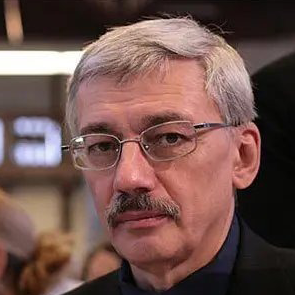Escalating crackdown on human rights defenders and organisations
From the beginning of Russia’s full-scale military invasion of Ukraine on 24 February 2022, human rights defenders and organisations have been facing increasing pressure from Russian law enforcement authorities due to their open anti-war position and for their monitoring and reporting of human rights violations during recent peaceful protests in Russia.
On 4 March 2022, unknown police officers raided two offices of Human Rights Center “Memorial” (HRC “Memorial”), Human Rights Society ‘Memorial’ (International Memorial) and Civic Assistance Committee. Staff members were not allowed to leave offices and lawyers could not access the premises during the raids, which lasted between 12 and 14 hours. Police officers seized several hard drives, books and brochures, and drew the “Z” symbol of Russia’s invasion on the offices’ flip charts. According to human rights defenders working with the organisations, the searches were allegedly linked to the involvement of HRC “Memorial” staff in anti-war protests.
On 6 March 2022, woman human rights defender and founder and Chairperson of the Civic Assistance Committee, Svetlana Gannushkina, and human rights defender and member of the Council of the Human Rights Center “Memorial” (HRC “Memorial”), Oleg Orlov, were arrested for taking part in peaceful demonstrations against the war in Ukraine. They were both charged with “violating the established procedure for arranging or conducting a meeting, rally, demonstration, procession or picket” according to Article 20.2 of the Administrative Code. Both human rights defenders were released after 10 hours of arbitrary detention. Svetlana Gannushkina was found guilty of “violating the established procedure for arranging or conducting a meeting, rally, demonstration, procession or picket” and has been fined 10,000 rubles (approximately 110 Euro). Oleg Orlov has been fined 20,000 rubles (approximately 220 Euro) for taking part in a peaceful demonstration on 6 March 2022 and 50,000 rubles (approximately 550 Euro) for a peaceful demonstration on 20 March 2022. On 4 April 2022, Oleg Orlov was detained once again by Russian law enforcement in Moscow for his peaceful participation in an anti-war protest, but was released later the same day. This is the fourth time that the human rights defender has been arrested in connection with peaceful anti-war protests. While protesting is an administrative offence in Russia’s legal code, systemic violation of the law could yield a prison sentence of up to 5 years for the human rights defender, according to Article 212.1 of the Criminal Code.
Since the beginning of Russia’s invasion of Ukraine, the crackdown against independent media, individual journalists and media platforms has intensified, as the security forces are clearly attempting to prevent media from providing factual reports on the invasion, the a nti-war movement and human rights violations in Russia.
On 26 February 2022, Russia’s media regulator, Roskomnadzor, published a statement ordering media to remove reports describing the attack on Ukraine as an “assault”, “invasion” or a “war”, otherwise they will be fined up to 5 million rubles (approximately 53,200 Euro) or they would be blocked. On 4 March 2022, the Russian government approved a bill criminalising the dissemination of “fake news” about Russian military operations, as well as “making calls against the use of Russian troops to protect the interests of Russia”, “discrediting such use” and “calling for sanctions against Russia”. The bill applies to both national and international media, and individuals, and it was added as a separate article to the Criminal Code (Article 207.3).
Since the end of February 2022, more than 200 media platforms have been blocked in Russia, including Radio Liberty, Radio Echo of Moscow, the popular news site Mediazona, Deutsche Welle and Dozhd TV. On 3 March 2022, Moscow’s Echo was liquidated and Dozhd TV was temporary closed. Nobel Peace Price laureate and investigative newspaper known for investigating human rights violations, especially in Chechnya, Novaya Gazeta, was forced to cease operations due a second Roskonmadzor warning concerning their reporting on Russia’s war on Ukraine, that would follow with stripping away its media license. On 7 April 2022, an unknown group of vigilantes attacked Novaya Gazeta’s Editor in Chief and human rights defender, Dmitry Muratov, on a train by throwing a bucket on red paint at him, aiming at his face. Dmitry Muratov stated that the vigilante group said this attack was in retaliation for Novaya Gazeta’s pro-Ukraine and anti-war publishing. This mass attack against freedom of speech also targets local news outlets. On 28 February 2022, the Federal Service for Supervision of Communications, Information Technology and Mass Media blocked the website of Altay Republic’s analytical paper known for its reporting on human rights violations, Listok, for their announcement of an anti-war rally. In April 2022, Listok’s office was raided and the founder of the newspaper remains under investigation for circulating reports about the massacre in Bucha, Ukraine.
On 10 March 2022, a committee at the Russian parliament's lower chamber, the State Duma, approved the bill to create an open database and registry of people who have links with companies, organisations, or media outlets that have been officially recognized as "foreign agents". Previously, the Russian government had already maintained multiple lists of individuals and entities it considers to be working as "foreign agents", which seriously limits the ability of Russian independent human rights organisations and human rights defenders to operate, both online and offline.
On 21 March 2022, Tverskoy District Court of Moscow officially designated that Meta was an “extremist organisation” in Russia for allowing users in some countries to call for violence against President Vladimir Putin and Russian soldiers participating in the country’s invasion of Ukraine. As a result of this decision, the Facebook and Instagram apps were blocked in Russia, posing a significant challenge for the work of human rights defenders in promoting human rights and sharing information concerning human rights violations.
On 8 April 2022, Russia’s Ministry of Justice shut down 15 local offices of foreign nongovernmental organisations and foundations, including Amnesty International and Human Rights Watch. The Ministry of Justice excluded them from the list of branches, that formerly received accreditation, due to "revealed violations of Russia's legal code”.
Front Line Defenders is deeply concerned about the intensified crackdown against human rights defenders, members of civil society, media and journalists, who promote human rights and document human rights violations. Front Line Defenders continues to reiterate its concern regarding the set of “foreign agents” laws that currently exist within the Russian legal framework, as it places human rights defenders, independent civil society activists in Russia, independent journalists and media outlets under increased risk and constraints for their peaceful and legitimate human rights work





